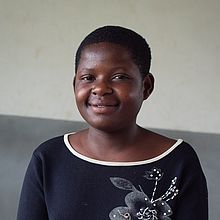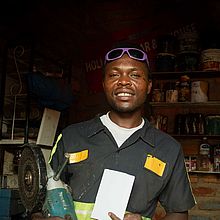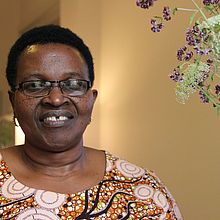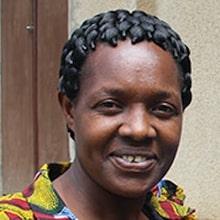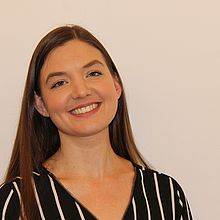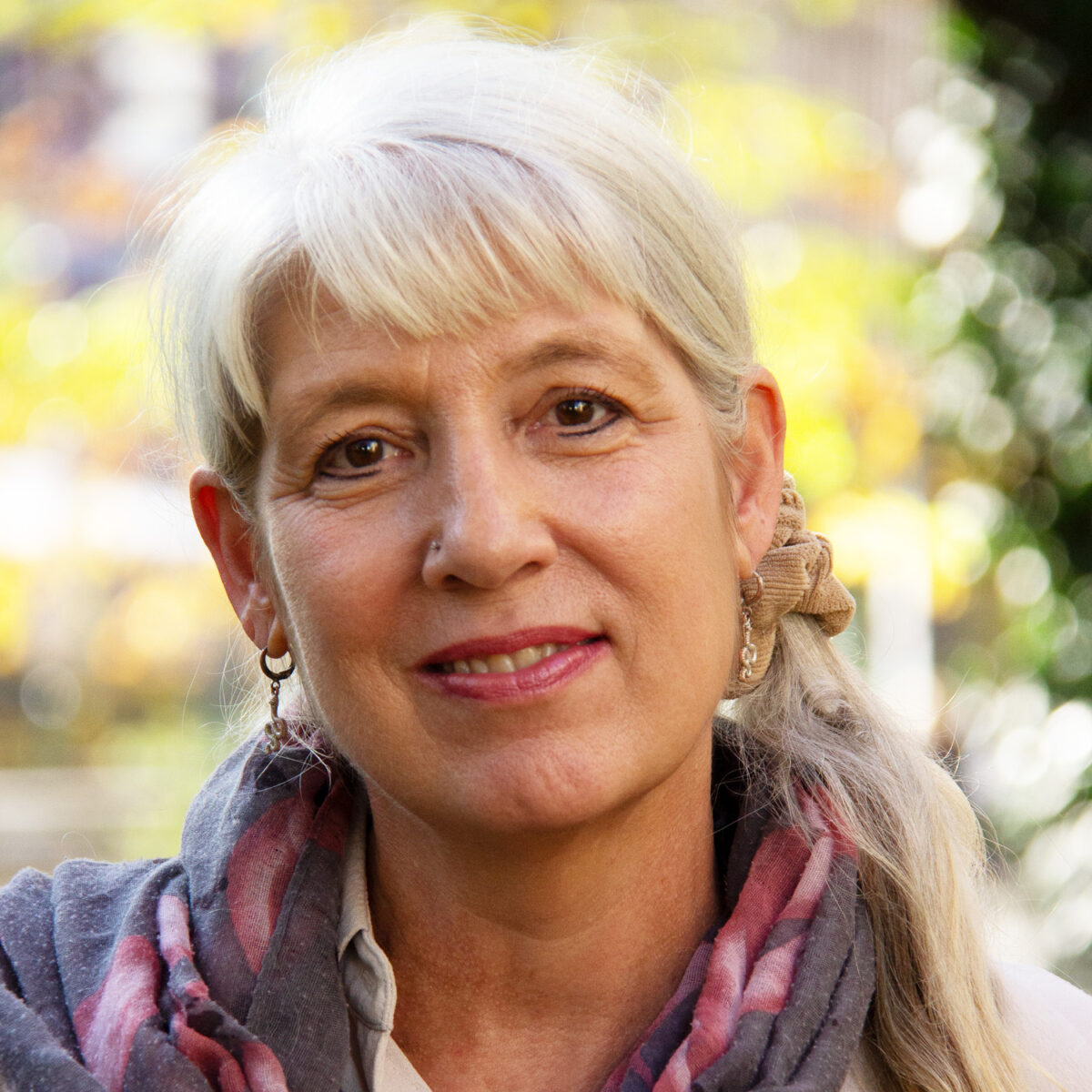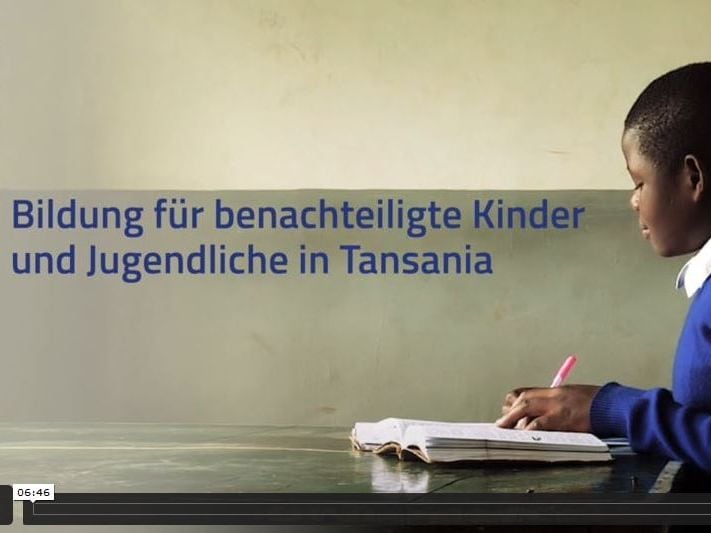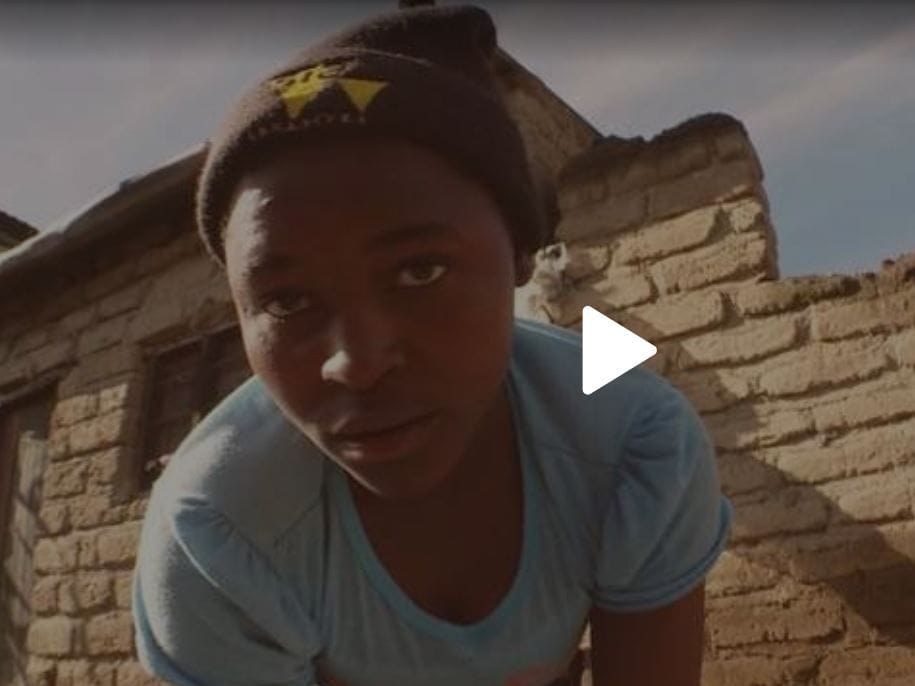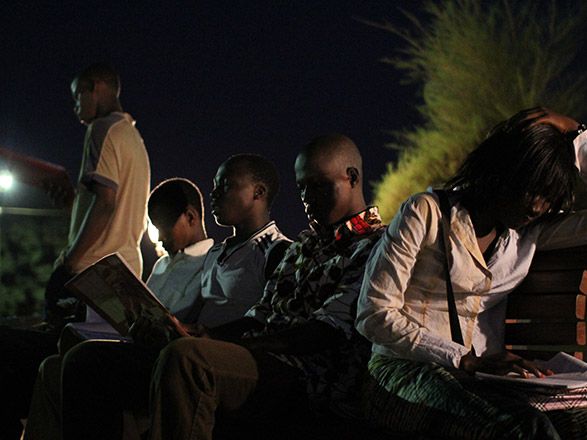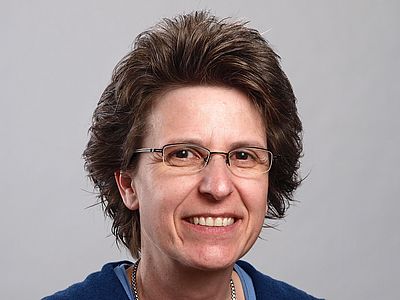Campaign 2021: Building our future together
With our 2021 campaign, which runs from September 26 to December 10, 2021, we are focusing on our education work in Tanzania and Switzerland. Together with our Tanzanian partner churches, we open up access to education for disadvantaged children and young people. We offer young people in Switzerland insights into global connections and motivate them to act in solidarity. We shed light on the importance of education in the global South as well as in Switzerland. For peaceful, inclusive and just societies, education for all and encounters at eye level are needed.
The campaign gives Swiss church congregations numerous opportunities to get involved with us.
Join in!
We would be very pleased if you would consider our educational work in Tanzania in your annual planning. Donations and contributions from various collection campaigns and events support our campaign and enable connectedness and solidarity with the worldwide church.
The campaign runs from Sept. 26 to Dec. 10, 2021. Appropriate dates for events or promotions include:
Action Days Campaign 2021
Find out more about the background to the campaign theme. Get involved during the campaign period with one of our action opportunities. We give you impulses for your community life: For lessons, for church services, theme evenings or a benefit event. Our experts will be happy to provide information and raise awareness in your parish.
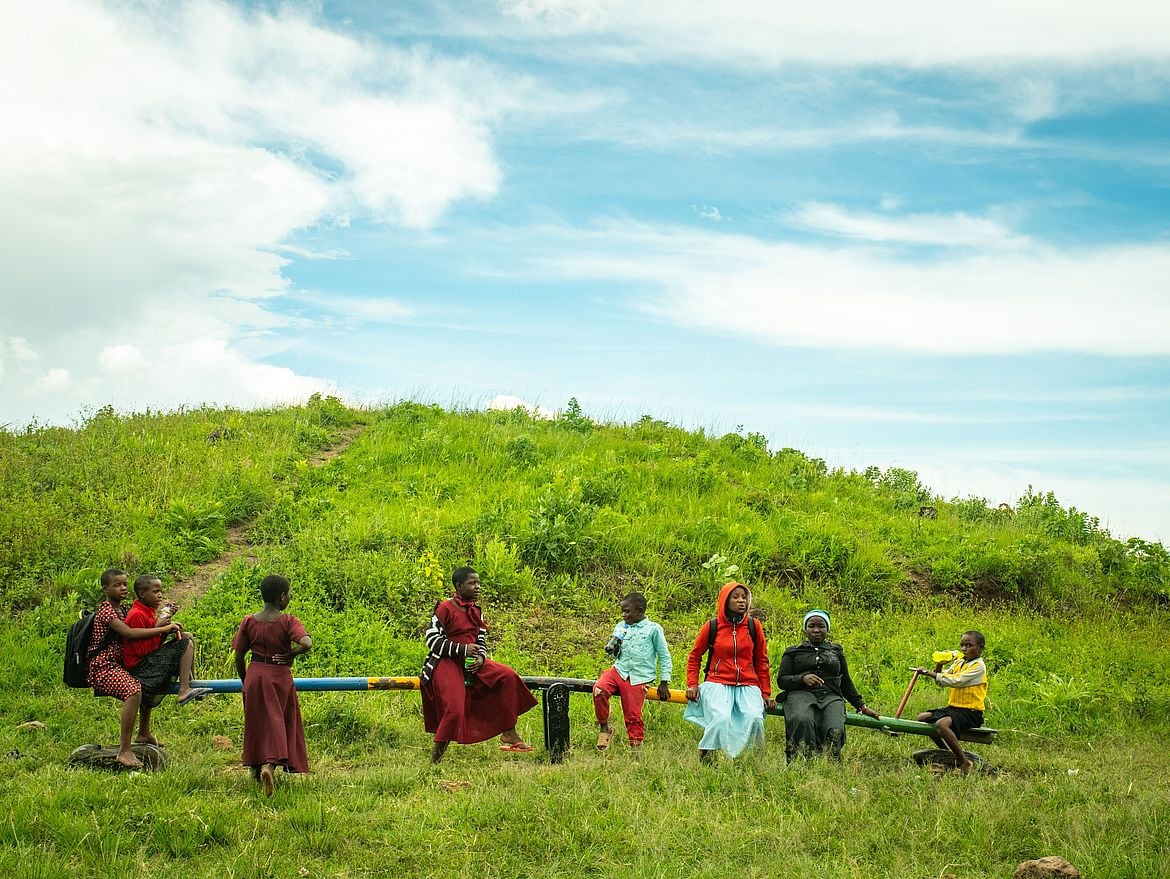
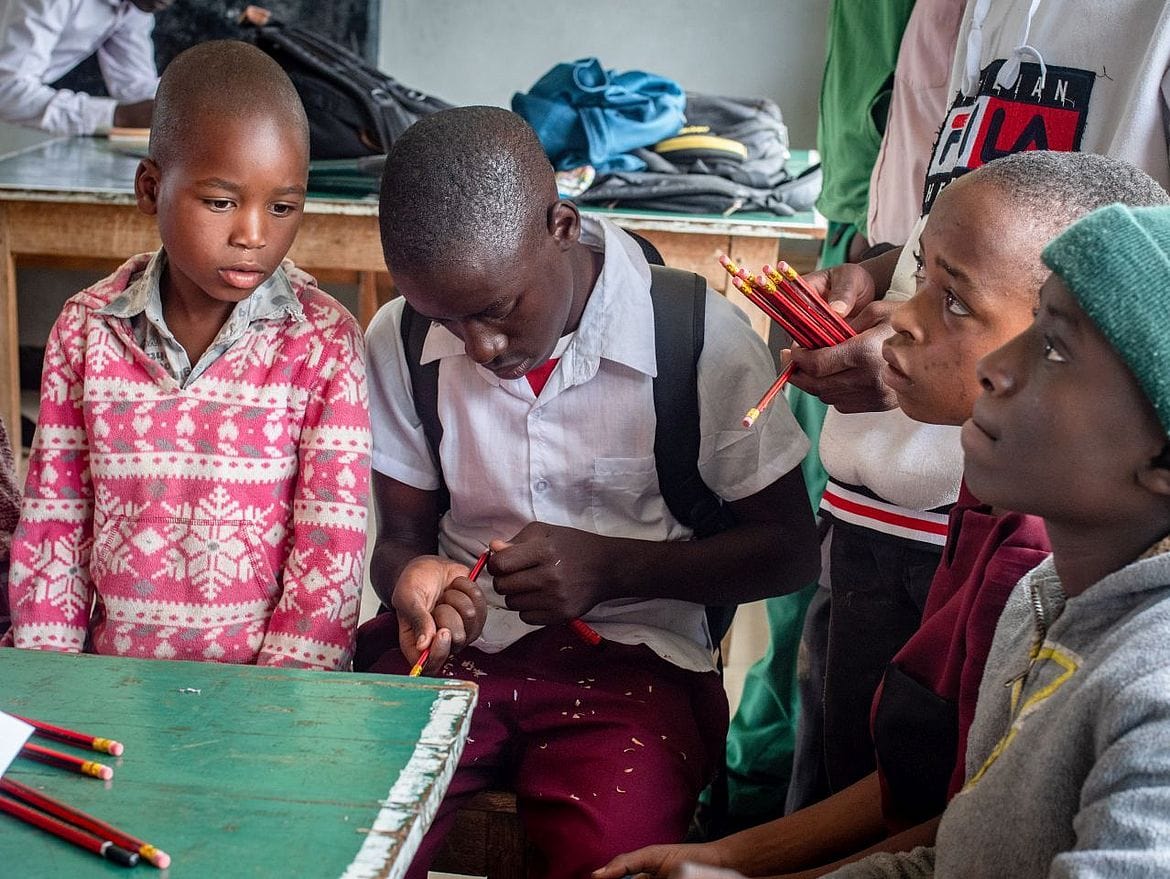
About the educational work
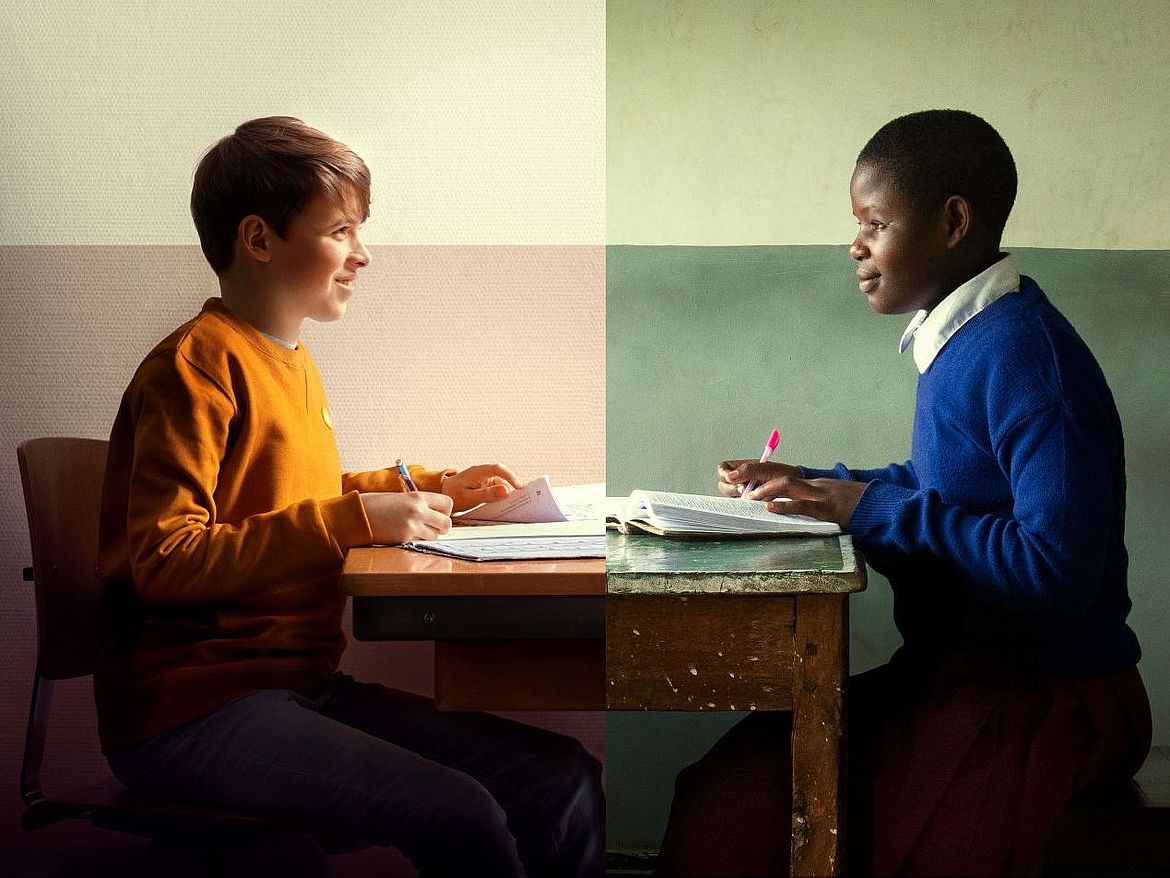
With the campaign, we support particularly vulnerable children in Tanzania by financing school materials, uniforms and fees so that they can attend classes and thus receive an education. In Tanzania, over one million children are growing up without parents due to the effects of HIV and AIDS. These orphans are among the weakest members of Tanzanian society. They are often marginalized and can rarely attend secondary schools. In Switzerland, we would like to promote an understanding of global interrelationships as well as intercultural exchange with our educational program on the topic of "Globalization and Society". Because we build our future together.
In addition to orphans, children from poverty-stricken families also have little chance of an education. The lack of schooling is only one problem. The affected children often suffer from malnutrition and poor medical care. In addition, many children are also traumatized by the death of a parent.
With your support and together with our local partner organizations, we aim to give as many disadvantaged children in Tanzania as possible access to education, healthy nutrition and medical care. Children and their foster families also receive psychosocial support.
► More about our orphan project
► More about our project work in Tanzania
► More about our partner church Moravian Church in Tanzania
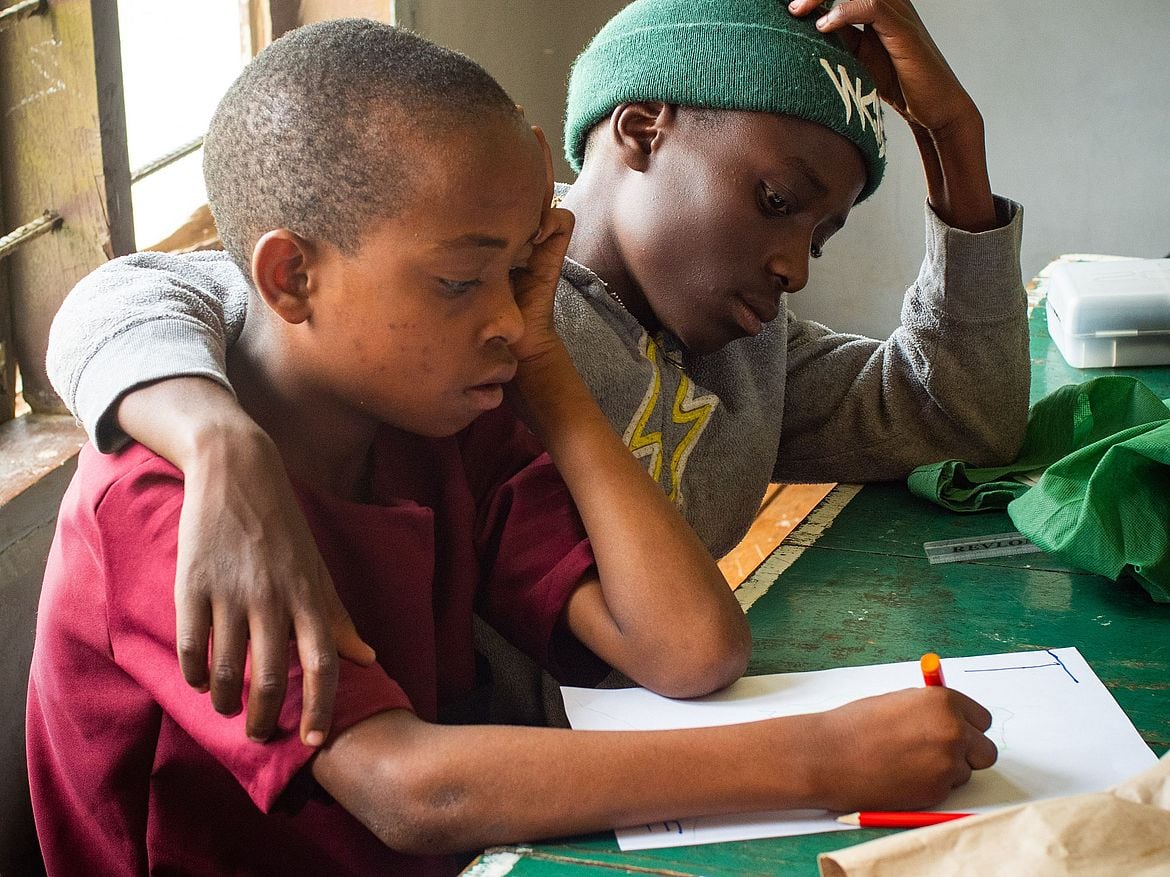
The Nsalaga Orphanage Center
The Nsalaga Center on the outskirts of the city of Mbeya is run by the Moravian Church in Tanzania, a partner church of Mission 21. Here, orphans and young people from difficult backgrounds receive help - from small things like soap to support to complete a vocational apprenticeship.
"Without the Nsalaga Center, I would not be where I am today". So says Irene, 16 years old. Her parents are separated, she lives with her grandmother under precarious circumstances. Since Irene has been accompanied in the project of the Moravian Church and Mission 21, she is doing better. School uniforms and school materials are now provided and she receives support in learning. "Without the project, I probably wouldn't have been able to go to school," she says. Now education is important to her - because it gives her a perspective.
At the Nsalaga Center, Irene also gets to know role models. Furaha, for example. He lost his parents when he was eight years old. With the help of the project, he was able to train as a mechanic and now has his own workshop. Stories like these give courage. The Nsalaga Center provides disadvantaged children with education and support in a difficult everyday life.
Actions and ideas to participate
Become part of the Mission 21 campaign. We offer you impulses for actions in your community and ideas on how to integrate the topic into your events. We look forward to your participation in the common commitment for a solidary, peaceful world.
Flea market for books

Make education a topic at the bazaar or soup day by offering a flea market for school utensils and books. We are also happy to support you for the event with information material or a visit.
Solidarity chocolate sale

Sell or give away our solidarity chocolate in your community. With every chocolate ordered, a donation goes to the work of Mission 21.
Foundation "Building the future together
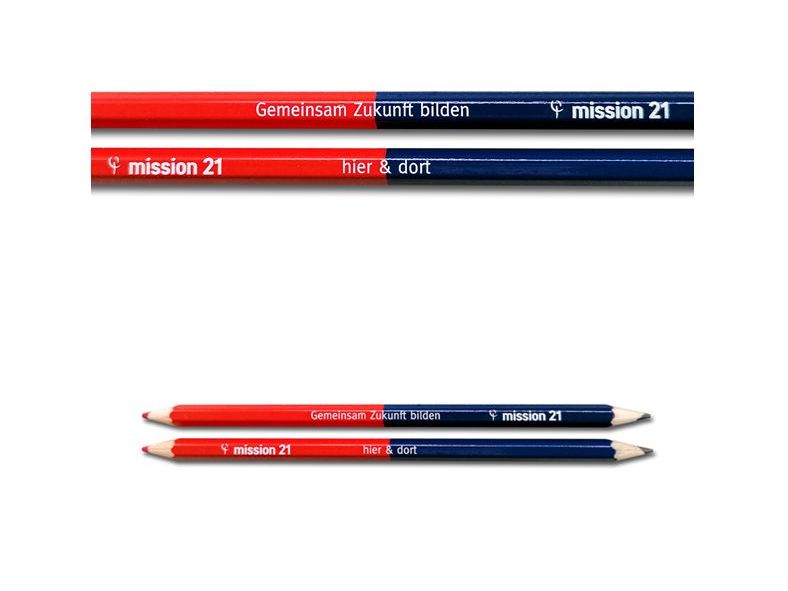
An eye-catcher for students and workshop participants and fitting to our campaign theme education. Surprise in class or in the workshop with the original writing pen with two ends. It is pencil on one side and red pencil for marking on the other. Made of FSC wood (EU) and 100 percent climate neutrally produced. Available free of charge in our ► Shop
Christmas tree campaign
Decorate a Christmas tree or garland in a special way for the first Advent, Mission Sunday, and participate in our Christmas campaign. Children and young people from Tanzania and Switzerland have drawn Christmas subjects with which we have produced beautiful cards. You can hang these on your Christmas tree, for example, and your visitors can buy and take them. With the sale you support our educational projects in Tanzania and Switzerland.
The material box with the card set, the info flyer and the wooden clips can be ordered in our store from September 26.
And this is how it works: ► Instructions as PDF
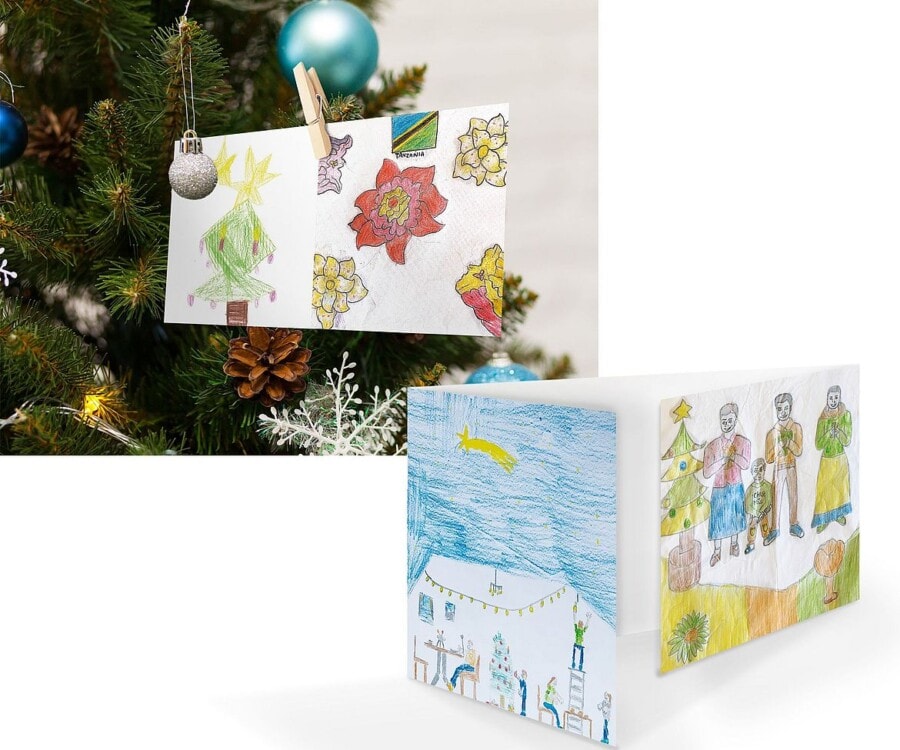
Our educational offers
Due to the pandemic, it is still uncertain whether guests will be able to travel to Switzerland. However, we will be happy to arrange a live exchange for you, in which we will add experts from Tanzania to your face-to-face or online event.
Experts from Tanzania
Mary Kategile is a minister at the Moravian Church in Tanzania and a lecturer at the Faculty of Theology at Teofilo Kisanji University in Mbeya. She lost her husband and a daughter. She has raised 6 children on her own and provided them with education. As a theologian, she is particularly concerned with gender issues and is committed to women's rights.
Bahati Mshani, herself raised without parents, received theological training through Mission 21. From 2010 to 2020, she was the director of a large orphanage program in Mbeya, southwest Tanzania, and devoted herself entirely to the compassionate care and education of the children.
Adrienne Sweetman has lived and worked in Tanzania since 2012. For Mission 21, she has headed the coordination office since 2019 and supports the local partner churches in organizational and personnel development. A special focus of her work is HIV prevention.
Your contact persons in Basel
Monika Di Pietrantonio
Responsible for administration of educational offers
Tel: +41 (0)61 260 22 67
► E-mail
Our expert from Europe
Whether it's for a church service, a day of action, a theme night, or a community meeting, we'll stop by and introduce you to the projects and the theme of the campaign.
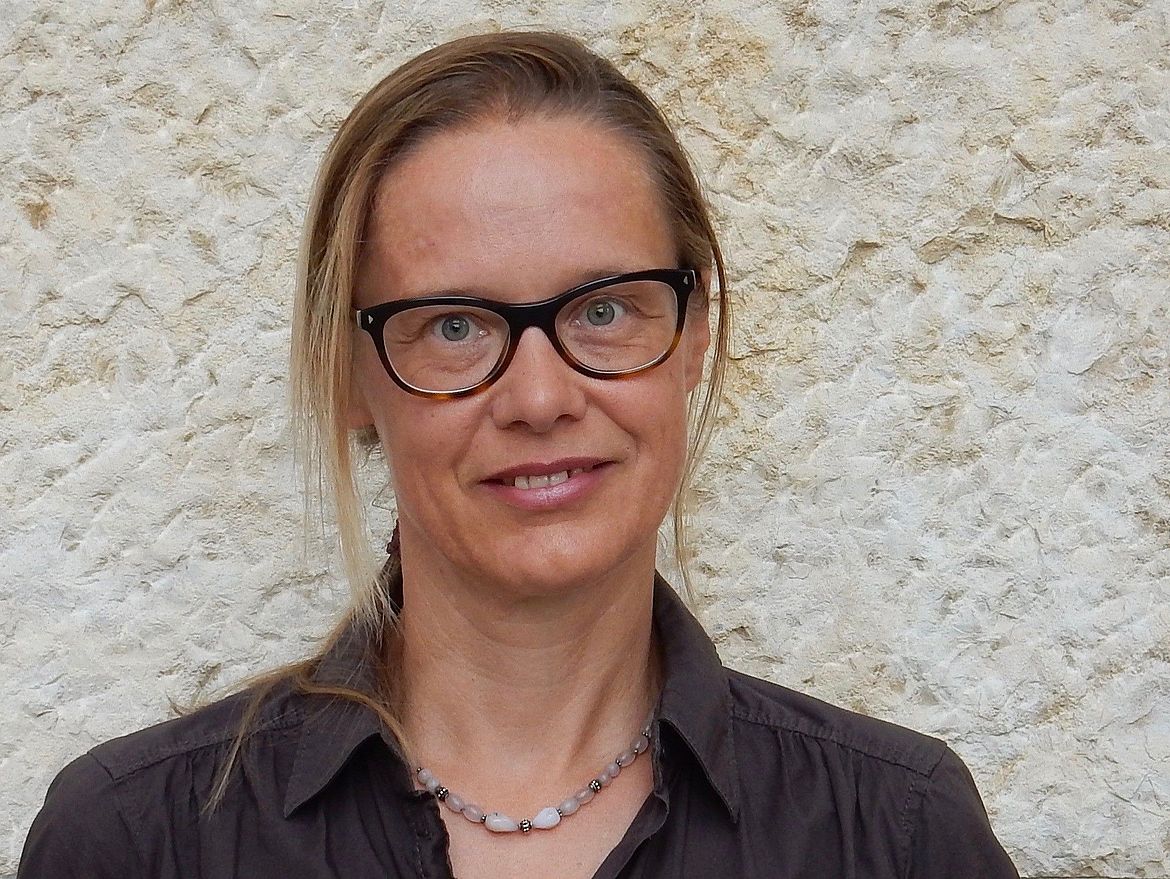
Alexandra Flury-Schölch, Pastor and Director of Studies
Contact: ► E-mail
Tel.: +41 (0) 61 260 22 46
Worked as pastor at the Stadtkirche Solothurn, foreign assignment in Cuba.
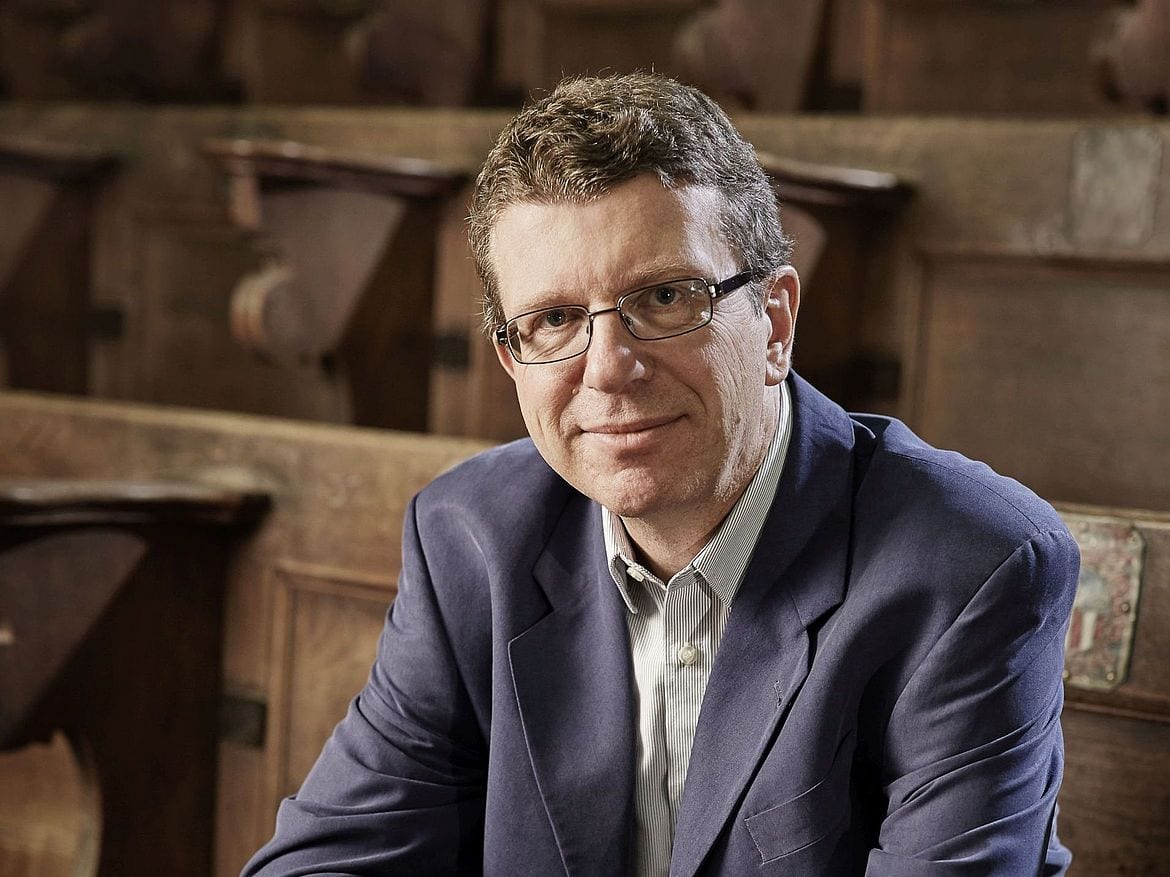
Christian Weber, Pastor and Director of Studies
Contact: ► E-mail
Tel.: +41 (0) 61 260 22 60
Worked for six years as director of a theological seminary near Lubumbashi, DR Congo.
Solothurn, foreign assignment in Cuba.
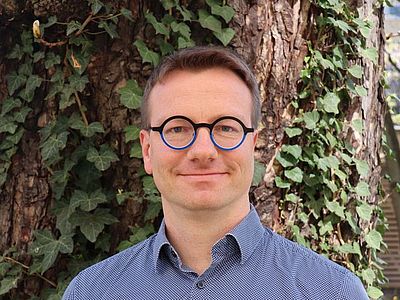
Johannes Klemm, Program Manager Tanzania
Contact: ► E-mail
Tel.: +41 (0) 61 260 23 04
Areas of focus:
The central role of churches in sustainable development, dealing with HIV/AIDS, and educational opportunities for vulnerable children in Tanzania.
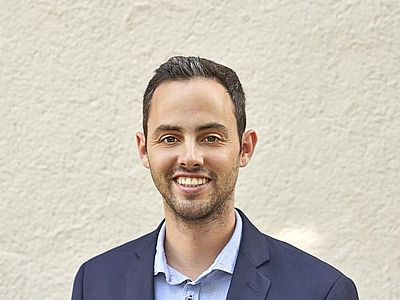
Kevin Ischi, Coordinator Church Partnerships
Contact: ► E-mail
Tel.: +41 (0) 61 260 22 67
Was on a research visit to the Mission 21 project region in Tanzania.
Courses and workshops
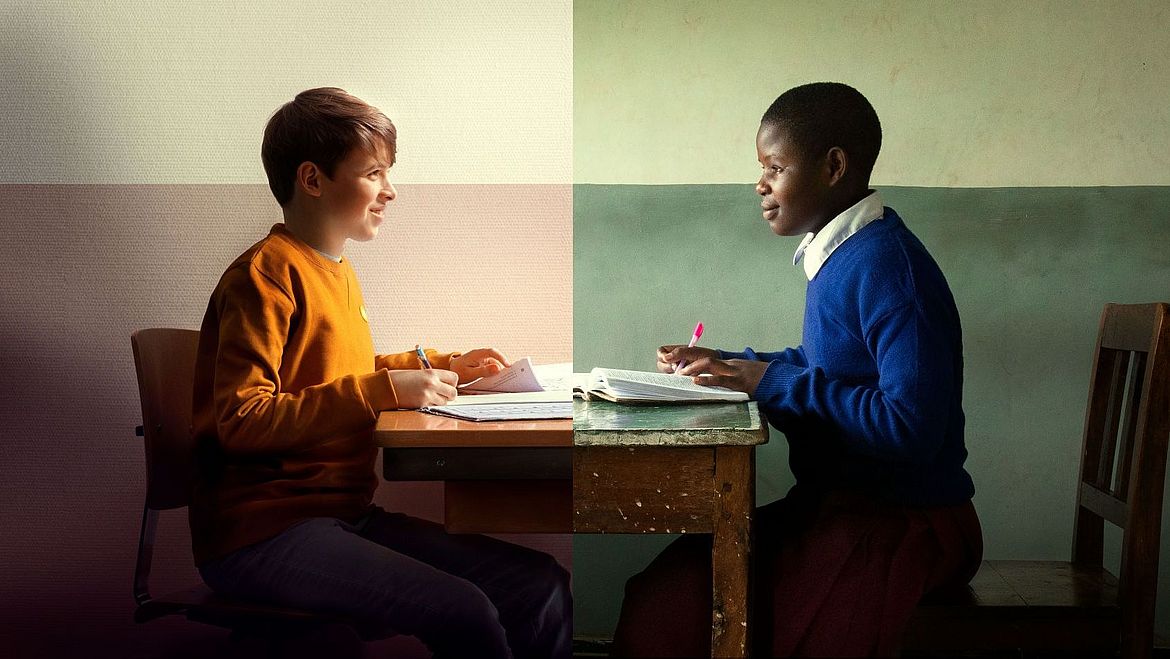
In search of the dream job
Duration workshop 1.5 to 2.5 h
All over the world, the path from school to work is an exciting transition. How do young people find their ideal job, what do they need for it and what prospects do they have? Young people from different countries describe their path to their dream job, their obstacles and what gives them the strength to overcome them. The workshop will be led by Rev. Alexandra Flury-Schölch or Rev. Christian Weber.
Requests: Monika Di Pietrantonio, ► E-mail, Tel.: +41 (0) 61 260 22 67
Become a Global Learner
Duration workshop about 1.5 h
Learning about the world is necessary, learning worldwide from and with each other is the future: after all, many global challenges can only be tackled together. "Think globally, act locally" is a good motto for what the world needs. In this workshop, young people learn why globally networked learning is so important. They will be encouraged to become "global learners" themselves. The workshop is led by Rev. Alexandra Flury-Schölch or Rev. Christian Weber.
Requests: Monika Di Pietrantonio, ► E-mail, Tel.: +41 (0) 61 260 22 67
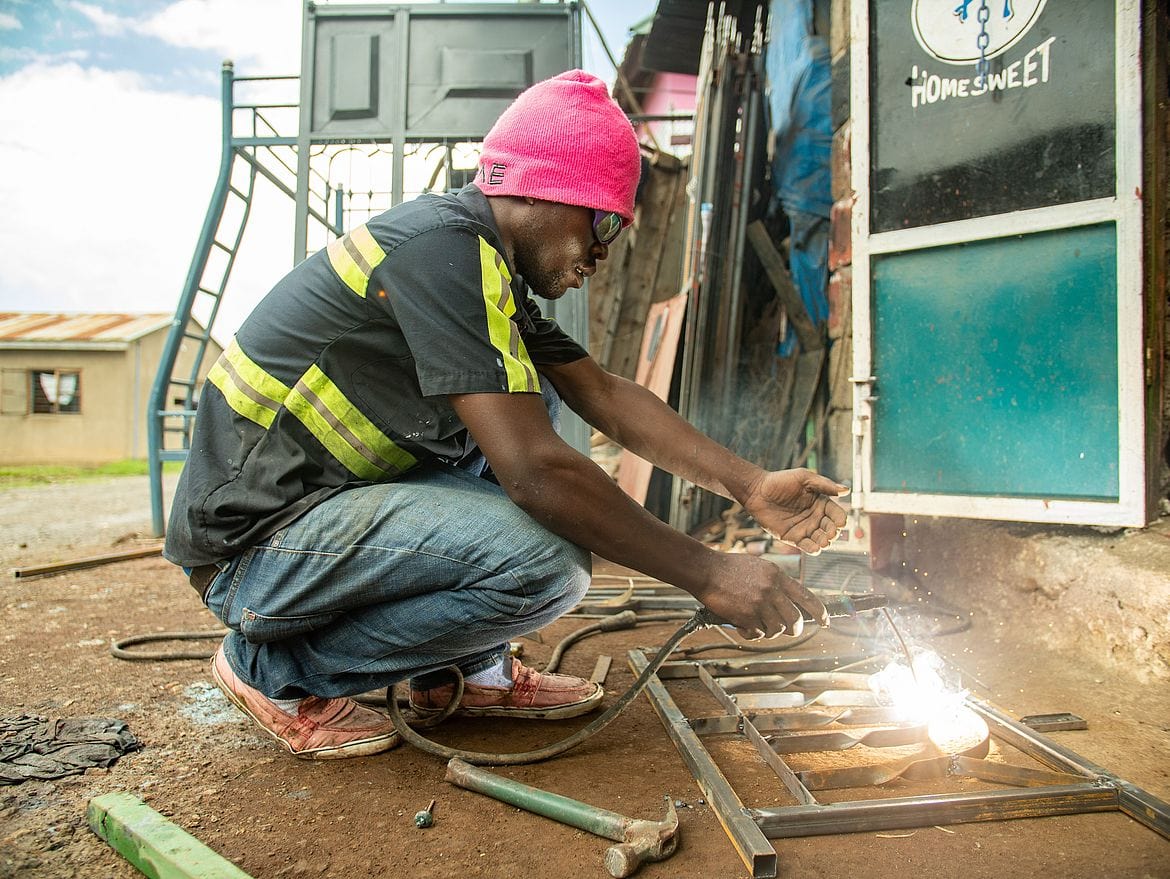
Workshops for teachers and pastors
In preparation for a teaching unit or a worship service, you will have the opportunity to be presented with the materials and background information on the topic during a short workshop. There will also be time for an exchange and discussion of concrete questions.
What to expect:
- Introduction to the topic: context, problem and project
- Theological impulses
- Suggestions for handling the materials
- Ideas for action possibilities
- Exchange and practical questions
The workshop will be led by Rev. Alexandra Flury-Schölch or Rev. Christian Weber.
Workshop Dates:
Wednesday, 8 September 2021, 18.30-19.30h
Wednesday, 27 October 2021, 18.30-19.30h
Login links:
- September 8: ► Registration form
- October 27: ► Registration form
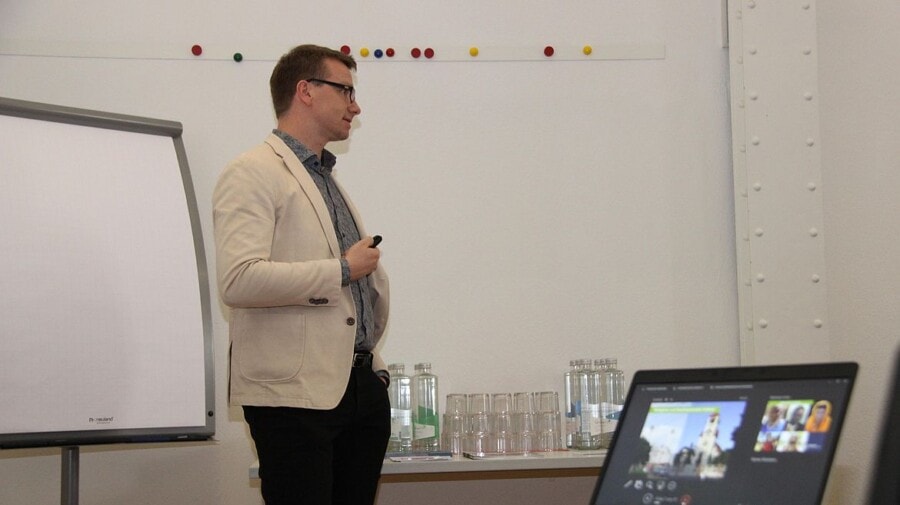
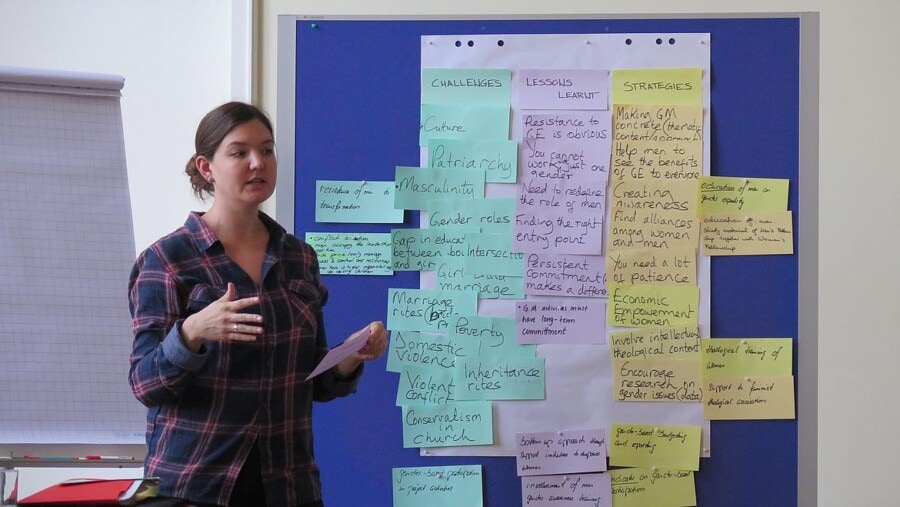
Events
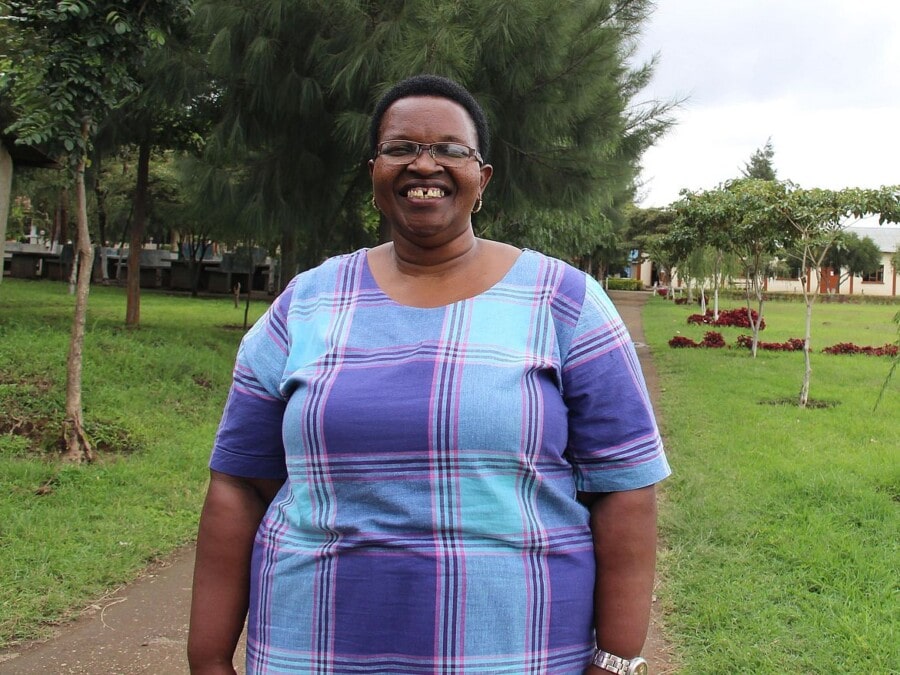
Date: November 24, 2021, 18-19.30h on Zoom
Moderation: Claudia Buess, Head of Educational Events Mission 21
Here it goes to the Registration: ► Mail to Mrs. Monika Di Pietrantonio
Dialog International online event
Right to education for girls and women in Tanzania
Mary Kategile teaches theology at Teofilo Kisanji University in Mbeya in southwestern Tanzania, which is supported by Mission 21, and has long been committed to women's issues and gender justice. In our online conversation with her, we explore the question of why so few girls attend secondary schools and what opportunities there are for women to generate an independent income. What about the sexual integrity of girls and women, and what opportunities for development do girls, but also boys, have in Tanzania? Children and young people under the age of 18 make up a large part of the population and have limited educational opportunities and career prospects due to poverty. Girls often have to work from an early age, are married off early and drop out of school. Only 30 percent of all girls attend secondary school and a tiny 2.5 percent attend universities. About one in four women in Tanzania cannot read.
Teaching and worship
Take advantage of our many suggestions for worship and teaching, as well as presentations on the campaign project and Tanzania. We also offer you short Preparation workshops to the materials on. All Materials you can find in our Store download.
Campaign material to order
Support our commitment to disadvantaged children without access to education - we offer various campaign materials for this purpose.
Various campaign material can already be ordered from our store.
Contact: Christine Lehni, ► E-mail, Tel: +41 (0)61 260 22 36
Our campaign magazine
Contact persons
Campaign events
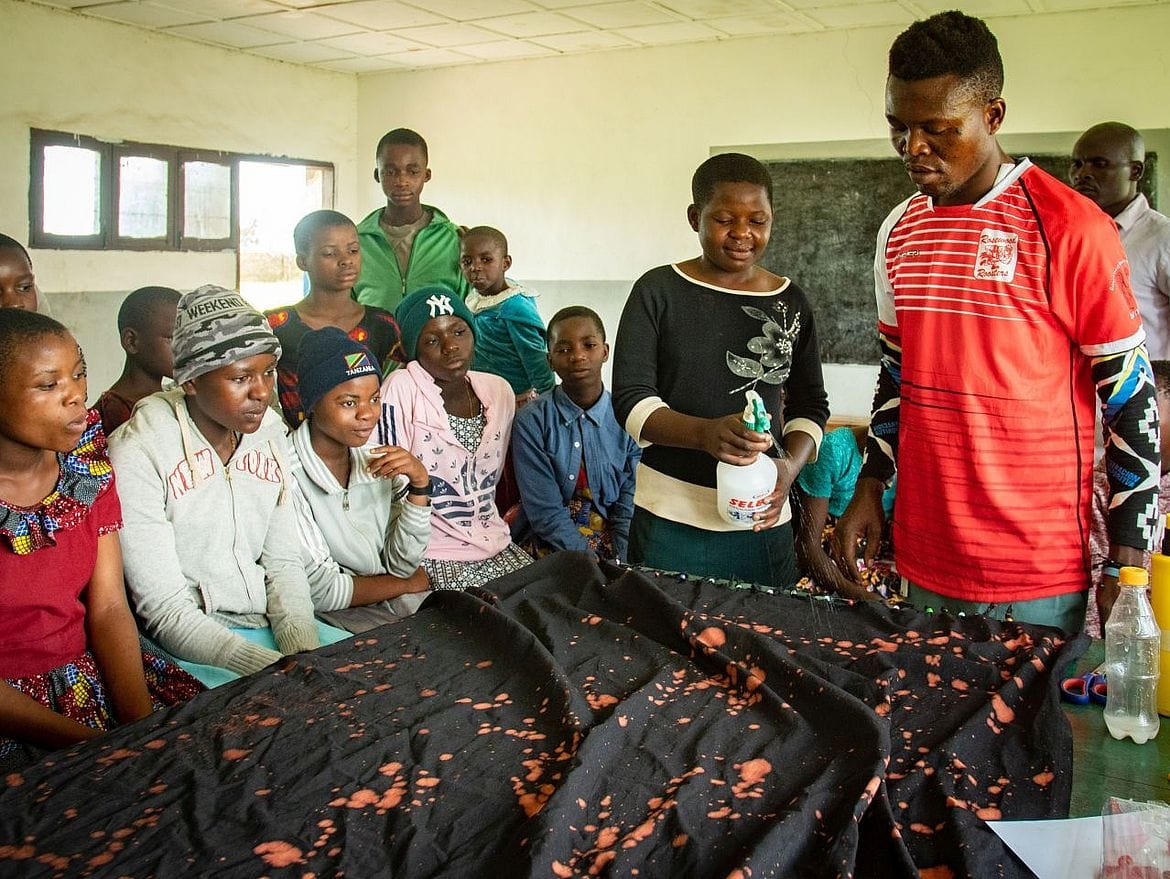
News
Sorry, we couldn't find any posts. Please try a different search.
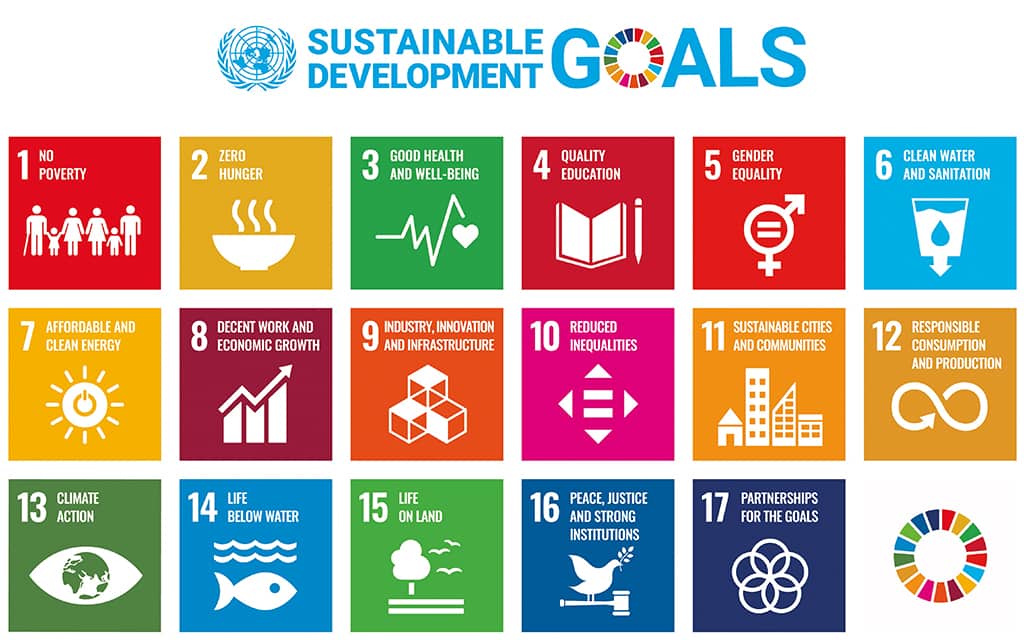
UN Agenda 2030
The UN's 2030 Agenda for Sustainable Development aims to make a big push for a fairer world. The world's societies are to "leave no one behind." The UN agenda aims to reach those who are furthest behind first. To this end, the United Nations has defined 17 development goals (Sustainable Development Goals SDGs). Nearly all of the world's heads of government have committed to aligning their economic and social policies to focus on the weakest of the weak and, in particular, to end hunger and poverty, ensure access to water and health, and promote education.
Together with our partner organizations, we are committed in all our projects to implementing the UN's shared vision of fighting poverty and reducing inequalities. In doing so, we place the UN Development Goal 16+ at the center of our work, which aims to build peaceful, just and inclusive societies. This also means that we empower particularly vulnerable members of society by helping to meet their basic needs and supporting them to gain access to education and healthcare. Thank you for supporting us in this mission!

